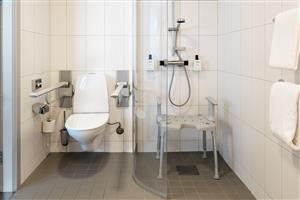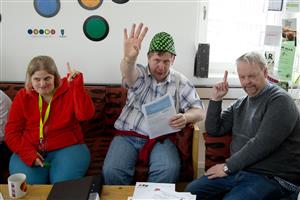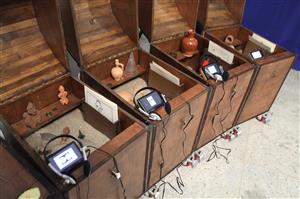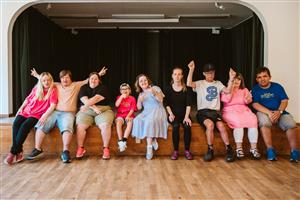Search Results
Search
Filter results
Advanced Filters
Your search returned 12 Solutions
-
Using technology in the classroom to support all students
The focus of the project is to increase knowledge among students, teachers, and other involved professionals on how the use of innovative technology in the classroom can facilitate participation and performance. 215 students with disabilities also received individual support. An accompanying study confirmed significant improvements.
Swedish Agency for Disability Coordination, Sweden -

Comprehensive hotel accessibility strategy
The strategy includes training courses for all hotel staff, a dedicated Accessibility Director, and a 135-point checklist of accessibility features. This "Accessibility Standard" was drawn up by following the route taken by guests from the car park and through the hotel, and with input from guests, disability organizations, and hotel staff.
Scandic Hotels, Sweden -
Personal Ombudsmen in Sweden
In Sweden a nationwide system of Personal Ombudsmen provides support in decision-making for persons with severe mental or psychosocial disabilities. POs assist individuals, identify care needs, but they have no medical responsibility, nor do they make any decisions in the capacity of an authority.
Swedish National Board of Health and Welfare, ESTABLISHING A NATIONWIDE SYSTEM OF PERSONAL OMBUDSMEN, Sweden -
The right to a personal assistance budget
The personal assistance budget (PAB) covers 100% of service costs, and enables individuals themselves to purchase self-directed personal assistance services from public and private entities. Notably, the policy has created a demand-driven market for personal assistance where providers compete for customers.
Swedish National Board of Health and Welfare, THE ACT CONCERNING SUPPORT AND SERVICE TO PERSONS WITH CERTAIN FUNCTIONAL IMPAIRMENTS & THE ASSISTANCE BENEFIT ACT, Sweden -
Personal Ombudsmen Enhance Self-Determination
Personal ombudsmen (POs) assist individuals with psychosocial disabilities in taking control of their own situation. In 2017 the organization employed a self-determination coordinator (referred to as a BISAM) charged with working alongside POs in group homes; and in that year the POs served more than 600 people.
PO Skåne - Personal ombudsman in Skåne, Sweden -
Anti-stigma campaign
Hjärnkoll is a national anti-stigma campaign in Sweden run by 200 "ambassadors", who are people with their own experience of psychosocial health problems. The key activities of the campaign are directed towards media and training for special targeted groups, such as employers, healthcare staff and police.
Swedish Agency for Disability Coordination, Anti-stigma campaign, Sweden -
Personal development through employment
Samhall is a state-owned company assigned to provide Meaningful work that furthers the personal development of people with disabilities. In 2013, 20,000 people were employed in 250 localities throughout Sweden and a total of almost 25,000 had been able to take the next step to a job with another employer.
Samhall, Personal development through employment, Sweden -

Study circles for persons with intellectual disabilities to engage in voting
Small study circle groups learn from easy-read materials and DAISY-formatted audio texts that describe Swedish democracy and the voting process. A group leader assists by fielding questions to politicians and arranging discussions. For the 2018 election there were 109 study circles, totalling some 650 people in 80 municipalities.
SV Study Association Vuxenskolan, My choice/My election, Sweden -

Training museum professionals in the Western Balkans to improve access to their buildings, collections and activities for persons with disabilities and enabling positive participation while challenging negative stereotypes.
Training for professionals working in museums are at the heart of the project. A information and education program is also provided to raise awareness for the persons with disabilities. Children and adults are welcomed as visitors and take part in various activities which enable them to experience their cultural heritage.
Cultural Heritage without Borders, Communicating art in the Western Balkans, Sweden -

Study circles supporting persons with intellectual disabilities in political processes
Via ‘study circles’ Studieforbundet Vuxenskolan (SV) from Sweden makes it easier for people with intellectual disabilities to access political processes. SV has also created a process that allows voters with disabilities to address questions important to them to political representatives.
SV Study Association Vuxenskolan, My choice/My election, Sweden